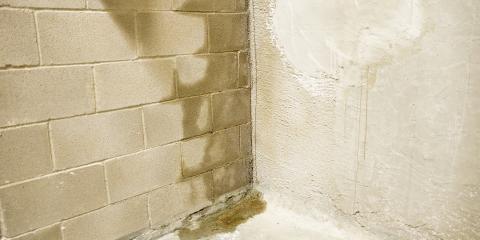.jpg)
A home inspection is crucial in determining the value and any possible problems with a home. As a seller, evaluating a house's condition is also a great time to address those problems, prep it for market, and establish better value and price of the home. For the buyer, having the home inspected will detail and identify everything you're getting into; all through the eyes of a knowledgeable expert, whether for caution, peace of mind, or planning repairs. So what should a home inspector check in your foundation and drainage?

Inspectors take a close look at walls and floors for mold, mildew, or signs of dampness. During this, they may use a meter to measure moisture which softens and deteriorates building materials. This can indicate there is an additional problem such as cracks or leaks.
Most leaks are caused by poor drainage. Whether there's a weak spot in the roofing, a leak in the gutters or downspouts, or water collecting around the foundation, if there are issues in the drainage system water can permeate through layers of the building's outer layer, eroding and compromising the makeup of your home's line of defense. This can be addressed by inspecting these elements of roofing, drainage, and standing water.
Deteriorated shingles or roofing can be spotted rather quickly. Sometimes shingles become degraded, cracked, or curled. Other times they're or buckled or simply missing. Either way, rainwater or melting snow can create damp or rotting materials beneath shingles, exposing your home to the elements. An inspector can help ensure your home's roof is leakproof, and the flashing on chimneys and brick and mortar are all watertight and in good condition.
Gutters and downspouts are crucial in properly channeling rainwater down and away from the home rather than having rainwater spill over the edge of the gutters and along the foundation. Downspouts should also be directed away from the house to guide water away properly.
Inspectors can also check underground drainage lines by sending a strong flow of water through with a hose. If draining properly, no water will flow backward which would indicate the line is backed up or clogged and needs to be cleared.
If you have standing water in your yard or around your house, this not only can cause a mess during lawn maintenance or with kids and pets playing in your yard. It's yet another threat to your home's foundation. Standing water in your yard can be caused by drainage problems such as overflowing gutters or faulty downspouts. Whatever the cause, improper yard drainage will wreak havoc on your basement and foundation.
To learn more, call Cincinnati Basement Waterproofing & Drainage today at (513) 898-9723.